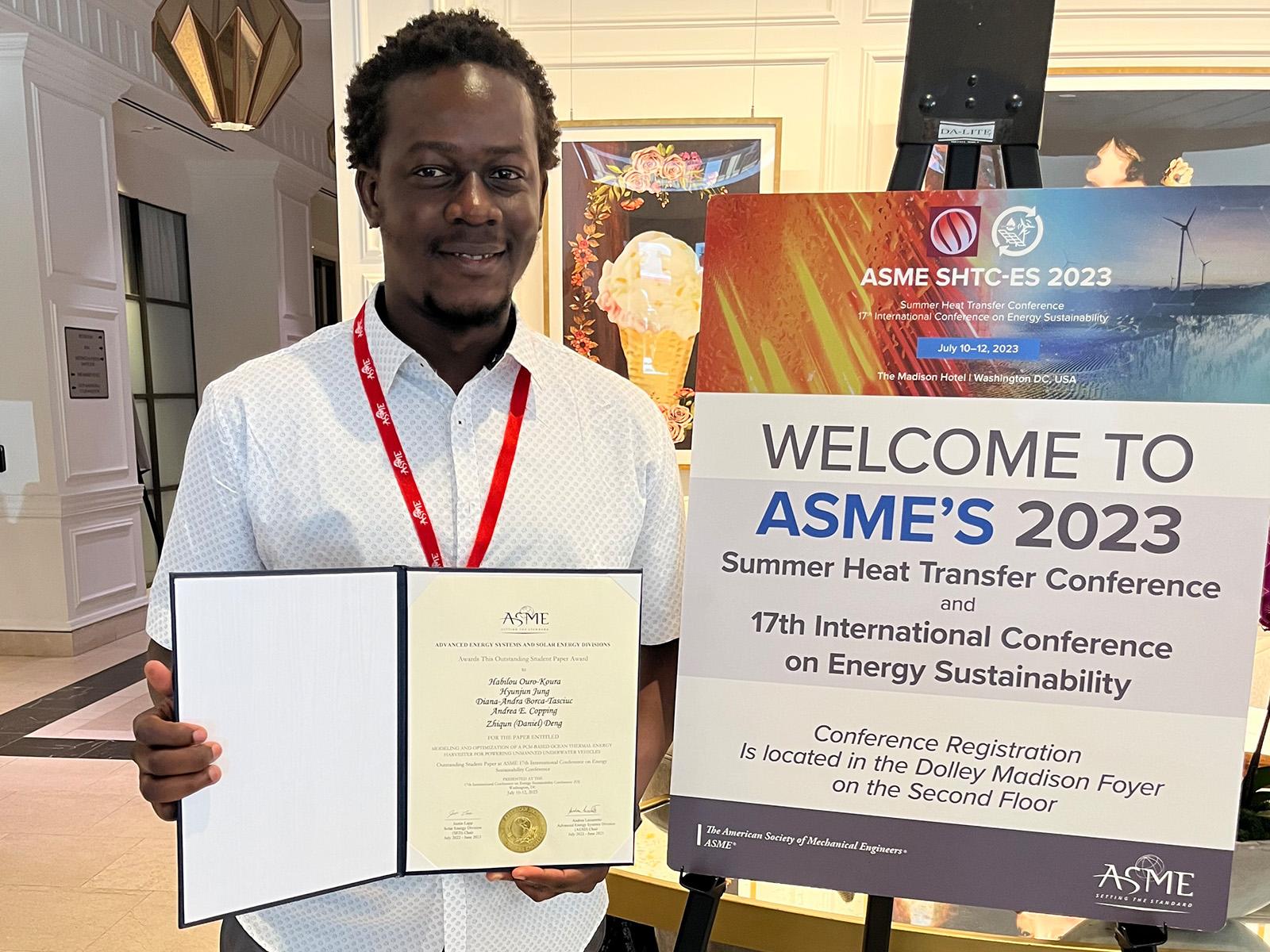Marine Thermal Energy Topic Earns Outstanding Paper Honor
Habilou Ouro-Koura’s paper provides insights on the ocean’s thermal energy as a power source for underwater vehicles

Habilou Ouro-Koura poses with his Outstanding Student Paper Award certificate at the recent International Conference on Energy Sustainability.
(Photo by Hannah Arnow | RPI)
Habilou Ouro-Koura, a graduate student from Rensselaer Polytechnic Institute (RPI) and visiting scholar working at Pacific Northwest National Laboratory (PNNL), has been recognized for his efforts to optimize marine thermal energy as a power source for unmanned underwater vehicles (UUVs).
In July, the American Society of Mechanical Engineers (ASME) presented Ouro-Koura with an Outstanding Student Paper Award, one of three presented at ASME’s 17th International Conference on Energy Sustainability in Washington, D.C.
“This was an amazing honor. I was very happy,” Ouro-Koura said. He credits his four co-authors for providing advice and support. “My advisor at RPI, Diana-Andra Borca-Tasciuc, and PNNL’s Hyunjun Jung, Andrea Copping, and Zhiqun (Daniel) Deng, all offered valuable insights and assistance,” Ouro-Koura noted.
Extending the benefits of UUVs
The paper, “Modeling and Optimization of a PCM (Phase Change Material)-Based Ocean Thermal Energy Harvester for Powering Unmanned Underwater Vehicles,” focuses on tapping the ocean’s own thermal energy to power float-type UUVs. These vehicles are critical to a range of ocean studies and typically rely on batteries, which have limitations.
Marine thermal energy systems already exist, and potentially can offer more stability and predictability than other sources, but need to be more efficient.
“We modeled a PCM-based ocean thermal energy harvesting system and optimized its electrical energy generation to meet the needs of a commonly used float,” Ouro-Koura said. “This information will help engineers develop or optimize this type of ocean energy harvesting technology for a variety of applications.” He noted the paper will be included in a conference proceeding in the future.
Applying his abilities and talent
Ouro-Koura interned at PNNL in 2021. He continues his work at PNNL under a fellowship from the Department of Energy Water Power Technologies Office’s (WPTO’s) Marine Energy Graduate Student Research Program, which is managed by the Oak Ridge Institute for Science and Education (ORISE).
“Habilou is an excellent student and a really talented engineer. We are so pleased he is joining us at PNNL to continue the great collaborative work he has been doing while he was a student,” said Copping. “Finding this quality of student is rare, and the Lab will benefit from Habilou’s work for a long time to come.”
Added Deng, “I concur with Andrea. I’m also glad and grateful that WPTO’s marine energy program has so effectively served Habilou, a rising young researcher, and PNNL, as the host institution.”
WPTO and ORISE provided funding support for the research that resulted in the paper.
Published: August 15, 2023